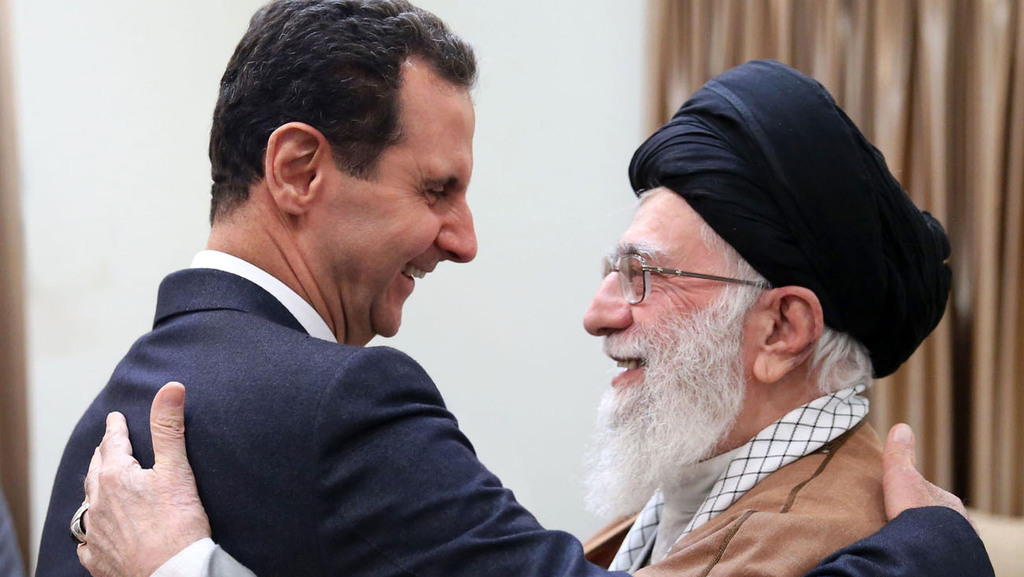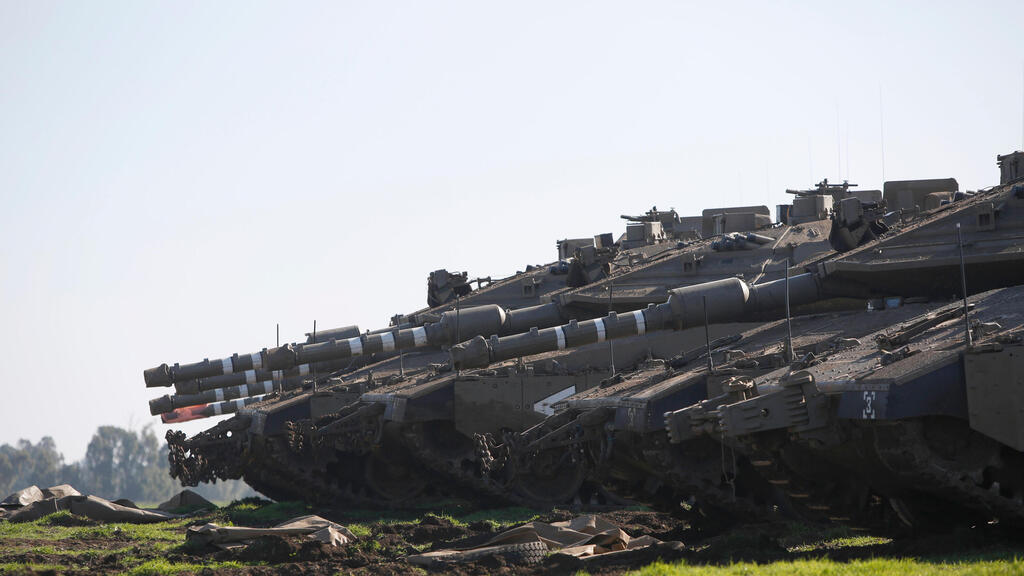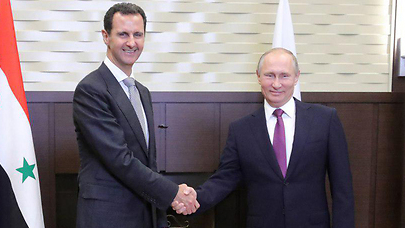Getting your Trinity Audio player ready...
An interesting question being discussed in the Middle East recently is whether Israel and Syria could normalize relations and ultimately reach a peace agreement.
The two countries remain in a state of war, Israel carries out periodic attacks on Syria soil and Damascus has warm relations with both Iran and the Lebanese-based Hezbollah terror group.
The Golan Heights captured by Israel in the 1967 Six-Day War are also a matter of contention and Syria claims to be the most prominent member of the resistance movement to Israel.
The regime demands a return of the Golan to its authority and is a strong supporter of the Palestinian cause, compounding the belief that Syria would be the last Arab nation to sign any peace pact with Israel.
But the events that have transpired over recent years and reports emerging from Damascus, awaken some new ideas. President Bashar Assad understands his continued rule in the wake of the civil war may require him to adopt different policies going forward, and peace with Israel might be one of them.
After 10 years of fighting, the Syrians have a tremendous task ahead, to rebuild the country and repatriate half of its citizenry that has scattered around the world. The immense cost of meeting such a challenge is clear and Damascus, which is reliant on both Russia and Iran, understands that its allies will not be able to provide the funding. Both countries are suffering economic difficulties themselves.
Assad must realize he will fail in his attempts to rebuild his nation if he is left without financial support.
Accept for criticism of the regime, all other matters can be discussed freely in Syria today. Even the necessity of reviewing the position towards Israel.
5 View gallery


Syrian President Bashar Assad with Iranian Supreme Leader Ali Khamenei in 2019
(Photo: AP)
The historic resistance to its southern neighbor is absent from Syrian media and political discourse.
No one is suggesting that the demand for the return of the Golan Heights to Syrian hands is an option, but there is no urgency to promote that conversation with so many more pressing problems to address, beginning with defeating the insurgency in the north of the country and the need to feed the struggling population.
Iran has provided Syria with nothing but promises, while Russia - Assad's only real ally - is also a friend to Israel and recognizes that Syrian-Israeli peace could be its way out of the international sanctions imposed on it.
Russia is also keen to eliminate any Iranian involvement in the Middle East nation and to win an historic achievement as the Israeli-Arab peacemaker. To achieve that, a shift in relations between Damascus and Jerusalem is key.
Reports are emerging of talks being already being held between Israeli and Syrian officials. While Damascus remains mum, Assad does not reject future normalization of relations, although he insists that the question of the Golan Heights must be resolved first and that a Palestinian state must be established.
Syria is also thwarting some of Iran's attempts to entrench in the south of the country and turn it into a launching pad for attacks on Israel.
From the Syrian perspective there are some conditions that must be met before any shift in policy can be considered.
The United States must recognize the legitimacy of the Assad regime, cancel all American and European sanctions imposed on Syria and provide substantial financial assistance to rebuild the country.
As far as the Golan Heights are concerned, both Syria and Israel would likely opt to leave a final agreement on the matter, to last and would any negotiations between the two countries could last for years.
Assad would then be able to reap the benefits of entering talks without committing to neglecting his territorial demands, while Israel would be able to claim it is chipping away at a most significant wall of resistance to peace.
If Assad decides to embark on such a policy change, he would face the opposition of Iran which controls much of his territory. He would also face the demands of an American administration under U.S. President Joe Biden, for democracy and human rights for the Syrian people.
Russia's chances of bringing about any Israeli-Syrian dialogue are slim but the temptation to try is there, nonetheless.
Oraib Rantawi is a columnist and the founder and director general of the Amman-based Al Quds Center for Political Studies





